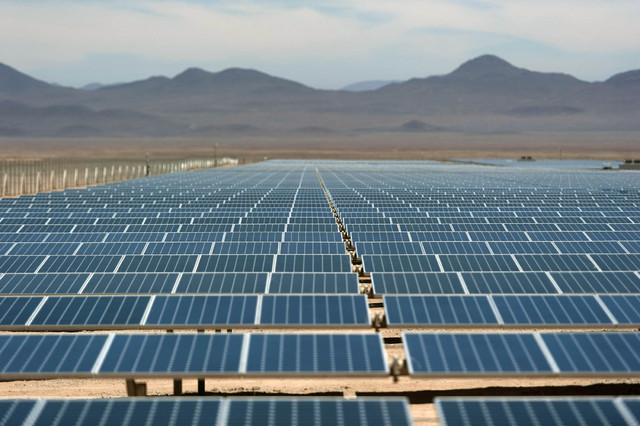In certain parts of the world, solar power is cheaper than coal. In less than a decade, it’s predicted that it will be the lowest-cost option worldwide.

In 2016, countries such as Chile and the United Arab Emirates broke records to develop electricity from sunshine for less than 3 cents a kilowatt-hour — a figure that is half of the average cost of using coal for power. Saudi Arabia, Jordan, and Mexico are planning auctions and tenders for this year in an attempt to drop prices further. Companies like Italy’s Enel SpA and Dublin’s Mainstream Renewable Power are taking advantage of this and seeking new markets abroad.
According to a study, solar prices have dropped 62%, with the supply chain trimming costs. Additionally, it’s cut risk premiums on bank loans and pushed manufacturing capacity to record levels. And according to Bloomberg New Energy Finance, solar power may be cheaper than using coal worldwide by 2025.
The average 1 megawatt-plus ground-mounted solar system will cost 73 cents per watt by 2025. Currently, the cost is $1.14, which would result in a 36% drop. According to Sami Khoreibi, founder and chief executive officer of Enviromena Power Systems, the solar supply chain is going through a “Wal-Mart effect” with higher volumes and lower margins.
The speed that the price of solar will drop varies, depending on the country. Places that import coal with a carbon price, including Europe and Brazil, will see the shift happen in the 2020s or even before. Countries with large domestic coal reserves, such as India and China, are expected to take longer.
According to the New Energy Finance, the largest solar market in China will see costs fall below coal by 2030. Additionally, the country has surpassed Germany as the nation with the most-installed solar capacity because the government is looking to increase use to cut carbon emissions as well as increase home consumption of clean energy.
“We’re seeing a new reality where solar is the lowest-cost source of energy, and I don’t see an end in sight in terms of the decline in costs,” said Khoreibi.
Source: Bloomberg
Advertisement
Learn more about Electronic Products Magazine





